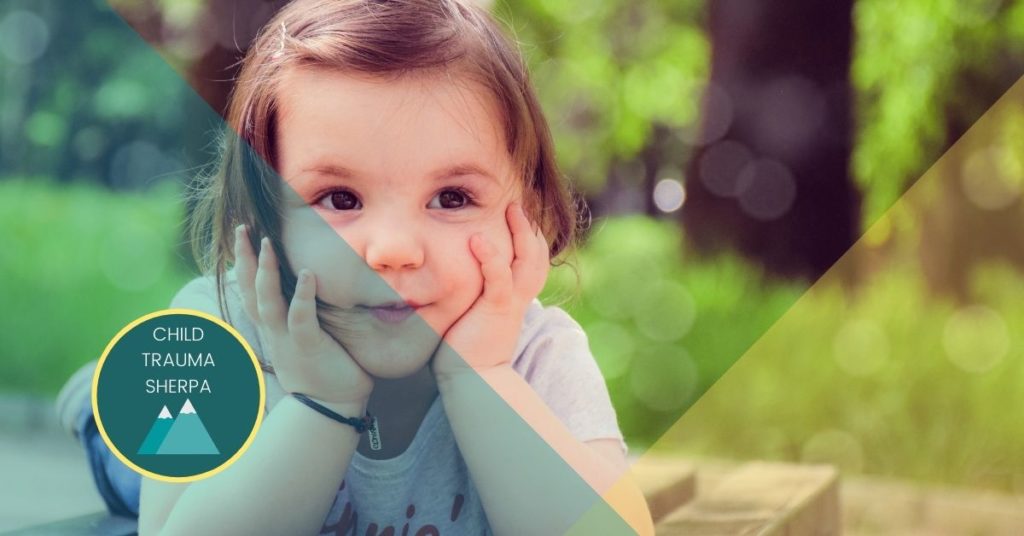Plus How RAD is Treated
Children with trauma can experience a host of developmental and emotional disorders. This is often due to the loss of trust and safety they experienced from the adults in their lives. One such disorder your child with trauma may be experiencing is Reactive Attachment Disorder, or RAD.
What is Reactive Attachment Disorder (RAD)?
Reactive attachment disorder is a serious condition in which a child does not establish a healthy attachment or emotional bond to parents or caregivers. RAD is most common in children between the ages of 9 months and 5 years who experienced emotional neglect or abuse. While not as common in older children, they too can have RAD, though it may be misdiagnosed as other behavioral or emotional difficulties.
While there is no exact cause, it is believed that this lack of appropriate loving and consistent care contributes to RAD. Children are more likely to develop RAD if they
- Were subject to extreme neglect or abuse
- Had inconsistent care or repeated changes of primary caregivers (such as moving from one foster home to the next)
- Caregivers had a disregard for the child’s emotional needs for comfort, stimulation and affection (needs not met at all or in a timely manner)
- Had parents with severe mental health problems, criminal behavior or substance abuse that impaired their parenting
- Had a prolonged separation from parents or other caregivers
- Had multiple traumatic losses early in life
- Lived in a children’s home or other institutions
Symptoms of RAD
Because these children were unable to form a loving bond with their parents or caregivers, they are unable to feel safe and trust the adults in their life. Those with RAD will have trouble managing their emotions and will struggle to form meaningful connections with other people.
Generally babies and young children with RAD may:
- Have unexplained withdrawal, fear, sadness or irritability
- Have a sad and listless appearance
- Not seek comfort or show response when comfort is given
- May avoid physical touch, especially from caregivers
- Watch others closely but not engage in social interaction
- Shows no interest in playing peekaboo or other interactive games
- Fail to ask for support or assistance
- Not express emotions of conscience (remorse, guilt or regret)
- Fail to show an expected range of emotions when interacting with others
- Not make eye contact
- Display inappropriate affection toward strangers while demonstrating a lack of affection for and/or fear of their primary caregivers
In older children with RAD, their symptoms fall into one of two categories:
- Inhibited RAD: These children are aware of what happens around them, but they do not give the typical response. Symptoms include detachment, unresponsive or resistant to comfort, excessive inhibition (holding back of emotions), withdrawal or a mixture of approach and avoidance, failure to seek affection from caregivers and a tendency to keep to themselves.
- Disinhibited RAD: These children may be overly friendly toward strangers, preferring other people to their primary caregivers, possibly even seeking out inappropriate attention. Symptoms include indiscriminate sociability, inappropriate familiarity, selective choice of attachment figures, no preference for their primary caregivers and a tendency to act younger than their age and to seek affection in potentially dangerous ways.
If not treated or cared for RAD can lead to a higher risk for complications later in childhood and adolescence including delays in developmental milestones, delays in physical growth, emotional problems (depression, anxiety, anger management issues), eating disorders, drug and/or alcohol abuse, trouble learning in school and problems in relationships (peers or partners).
Diagnosis of RAD
If a child has symptoms of RAD, a doctor may do a complete medical history and physical exam including a review of the child’s developmental milestones. While there are no lab tests to diagnose RAD, the doctor may include neuroimaging or blood tests to rule out a physical illness or medication that could be causing the symptoms. Once the primary doctor rules out a physical cause, they will likely refer the child to a child and adolescent psychiatrist or psychologist. These mental health professionals are specially trained to diagnose and treat mental illnesses in children and teens and use specially designed interview and assessment tools to evaluate children for mental disorders. They base their diagnosis on what they have been told about the symptoms as well as observations of the child’s attitudes and behaviors.

Treatment for RAD
Treatment for RAD focuses on repairing and/or creating emotionally healthy family bonds. The aim is to strengthen relationships between the child and their caregivers in a way that helps the child to later develop other healthy relationships. Because of this, treatment often involves both the child and the caregivers and may incorporate:
- Psychotherapy/Counseling one-one-one with the child, one-on-one with the caregivers, and sometimes in combination.
- Family therapy to help the child develop healthy interactions with their caregivers.
- Social skills intervention to help the child learn how to interact more appropriately with peers in typical social settings. Caregivers are also involved.
- Special education, if the child qualifies, to help the child succeed both academically and socially.
- Parenting skills classes for caregivers to learn more effective ways of managing their child’s challenges.
Conclusion
Many children who receive treatment for RAD are able to form stable and healthy bonds with their primary caregivers and others. Remember, it is never too late to seek treatment for developmental and mental health conditions. Children are amazingly resilient and the brain is constantly growing and repairing itself through the age of 25. With your help, your adopted child with trauma will learn over time to connect, share and love others!
Want more helpful information on how to help your child with trauma to heal and form healthy relationships? Sign up to get my 3 Keys for Parenting Adopted Kids with Trauma delivered straight to your inbox!

